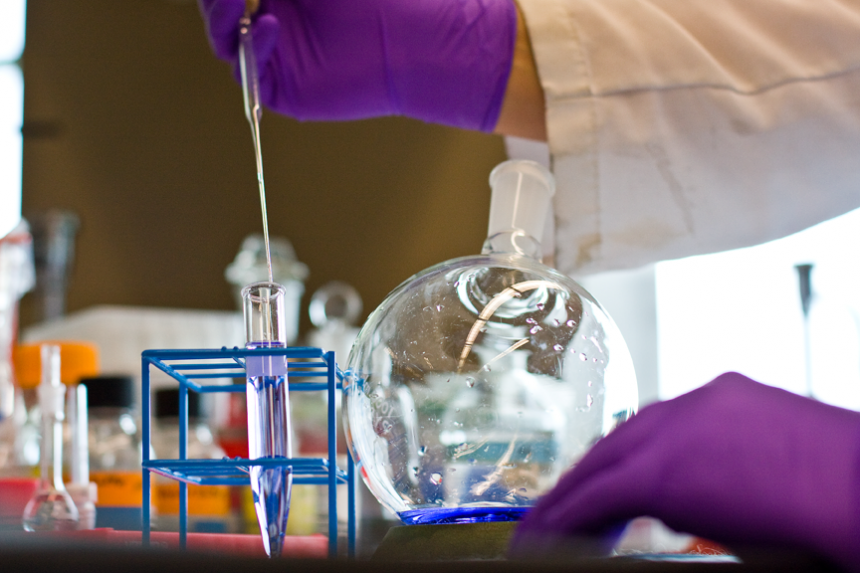GET MOLECULAR &GENETIC TESTING
The Molecular Diagnostics division at GDL care was initiated with the aim of providing modern molecular diagnostic services is to deliver solutions to facilitate evidence based medical practice for better healthcare. The Division’s test results provide information that, along with other tests and observations, helps shed light on whether or not a disease is present, has progressed, or has changed its course so that a judgment can be made on what treatment regimen might be most appropriate for a particular patient at a given time. This approach and modality has drastically enhanced the perception of GDL: care as a quality diagnostic support provider.
Our team comprises both medically and doctorate qualified staff supporting and together, we provide medical and scientific support for our laboratory. We are available for consultative services regarding laboratory testing, result interpretation, and unexpected results. Please contact us when unusual cases are encountered and special testing arrangements are required.

Current Tests Panels
Panel name | Description |
TB PCR | Tuberculosis (TB) Qualitative |
HIV GENOTYPING | HIV GENOTYPING |
HIV RNA QL | HIV RT PCR Qualitative |
HIV RNA QT | HIV RT PCR Qualitative |
HBV QL | HBV Qualitative |
HBV QT | HBV Qualitative |
HCV QL | HCV Qualitative |
HCV QT | HCV Quantitative |
HSV QL | HSV (1&2) Qualitative |
HPV-16/18 QL | HPV (16 & 18) Qualitative |
TOX Plus | Toxoplasma Detection |
RUB Check | Rubella Detection |
CMV QL | CMV Qualitative |
CMV QT | CMV Quantitative |
TORCH QL | TORCH Panel Qualitative |
PARV-B19 | Parvovirus B19 Detection |
CHLAM Check | Chlamydia Detection |
BCR-ABL QL | BCR/ABL Qualitative [Mbcr CML] |
BCR-ABL QT | BCR/ABL Quantitative [Mbcr CML] |
GENETIC TESTING
Genetic testing involves examining your DNA, the chemical database that carries instructions for your body’s functions. Genetic testing can reveal changes (mutations) in your genes that may cause illness or disease.
Although genetic testing can provide important information for diagnosing, treating and preventing illness, there are limitations. For example, if you’re a healthy person, a positive result from genetic testing doesn’t always mean you will develop a disease. On the other hand, in some situations, a negative result doesn’t guarantee that you won’t have a certain disorder.
Why it’s done
Genetic testing plays a vital role in determining the risk of developing certain diseases as well as screening and sometimes medical treatment. Different types of genetic testing are done for different reasons:
- Diagnostic testing. If you have symptoms of a disease that may be caused by genetic changes, sometimes called mutated genes, genetic testing can reveal if you have the suspected disorder. For example, genetic testing may be used to confirm a diagnosis of cystic fibrosis or Huntington’s disease.
- Presymptomatic and predictive testing. If you have a family history of a genetic condition, getting genetic testing before you have symptoms may show if you’re at risk of developing that condition. For example, this type of test may be useful for identifying your risk of certain types of colorectal cancer.
- Carrier testing. If you have a family history of a genetic disorder — such as sickle cell anemia or cystic fibrosis — or you’re in an ethnic group that has a high risk of a specific genetic disorder, you may choose to have genetic testing before having children. An expanded carrier screening test can detect genes associated with a wide variety of genetic diseases and mutations and can identify if you and your partner are carriers for the same conditions.
- Pharmacogenetics. If you have a particular health condition or disease, this type of genetic testing may help determine what medication and dosage will be most effective and beneficial for you.
- Prenatal testing. If you’re pregnant, tests can detect some types of abnormalities in your baby’s genes. Down syndrome and trisomy 18 syndrome are two genetic disorders that are often screened for as part of prenatal genetic testing. Traditionally this is done looking at markers in blood or by invasive testing such as amniocentesis. Newer testing called cell-free DNA testing looks at a baby’s DNA via a blood test done on the mother.
- Newborn screening. This is the most common type of genetic testing. In the United States, all states require that newborns be tested for certain genetic and metabolic abnormalities that cause specific conditions. This type of genetic testing is important because if results show there’s a disorder such as congenital hypothyroidism, sickle cell disease or phenylketonuria (PKU), care and treatment can begin right away.
- Preimplantation testing. Also called preimplantation genetic diagnosis, this test may be used when you attempt to conceive a child through in vitro fertilization. The embryos are screened for genetic abnormalities. Embryos without abnormalities are implanted in the uterus in hopes of achieving pregnancy
The Genetic Testing Process
For most genetic tests, either a saliva sample or blood sample is collected. This test includes next-generation sequencing and multiplex ligation-dependent probe amplification to evaluate for mutations and large deletions/duplications in the BRCA1 and BRCA2 genes. Results are generally available in two to four weeks. If your result is positive for a mutation, your doctor will discuss cancer surveillance strategies with you, and possibly recommend testing for other family members.
- NIPT
- BRCA1 (BReast CAncer gene 1) and BRCA2 (BReast CAncer gene
- KARYOTYPING and Chromosome analysis
